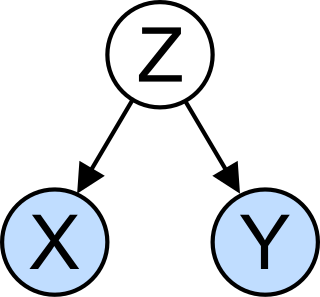In logic, equivocation is an informal fallacy resulting from the use of a particular word/expression in multiple senses within an argument.
Neutral or neutrality may refer to:
A parameter, generally, is any characteristic that can help in defining or classifying a particular system. That is, a parameter is an element of a system that is useful, or critical, when identifying the system, or when evaluating its performance, status, condition, etc.
Experimental psychology refers to work done by those who apply experimental methods to psychological study and the processes that underlie it. Experimental psychologists employ human participants and animal subjects to study a great many topics, including sensation & perception, memory, cognition, learning, motivation, emotion; developmental processes, social psychology, and the neural substrates of all of these.

In computer science, conditionals are programming language commands for handling decisions. Specifically, conditionals perform different computations or actions depending on whether a programmer-defined boolean condition evaluates to true or false. In terms of control flow, the decision is always achieved by selectively altering the control flow based on some condition.
In Bayesian statistical inference, a prior probability distribution, often simply called the prior, of an uncertain quantity is the probability distribution that would express one's beliefs about this quantity before some evidence is taken into account. For example, the prior could be the probability distribution representing the relative proportions of voters who will vote for a particular politician in a future election. The unknown quantity may be a parameter of the model or a latent variable rather than an observable variable.
Merge, merging, or merger may refer to:

Mentalism is a performing art in which its practitioners, known as mentalists, appear to demonstrate highly developed mental or intuitive abilities. Performances may appear to include hypnosis, telepathy, clairvoyance, divination, precognition, psychokinesis, mediumship, mind control, memory feats, deduction, and rapid mathematics. Mentalists perform a theatrical act that includes effects that may appear to employ psychic or supernatural forces but that are actually achieved by "ordinary conjuring means," natural human abilities, and an in-depth understanding of key principles from human psychology or other behavioral sciences.

The elaboration likelihood model (ELM) of persuasion is a dual process theory describing the change of attitudes. The ELM was developed by Richard E. Petty and John Cacioppo in 1980. The model aims to explain different ways of processing stimuli, why they are used, and their outcomes on attitude change. The ELM proposes two major routes to persuasion: the central route and the peripheral route.
This is a glossary of conjuring terms used by magicians.

In statistics, a confounder is a variable that influences both the dependent variable and independent variable, causing a spurious association. Confounding is a causal concept, and as such, cannot be described in terms of correlations or associations.
In mathematics, a variable is a symbol which works as a placeholder for expression or quantities that may vary or change; is often used to represent the argument of a function or an arbitrary element of a set. In addition to numbers, variables are commonly used to represent vectors, matrices and functions.
In statistics, probability theory, and information theory, a statistical distance quantifies the distance between two statistical objects, which can be two random variables, or two probability distributions or samples, or the distance can be between an individual sample point and a population or a wider sample of points.
In ethics, evasion is an act that deceives by stating a true statement that is irrelevant or leads to a false conclusion. For instance, a man knows that another man is in a room in the building because he heard him, but in answer to a question, says, "I have not seen him," thereby avoiding lying and also avoiding making a revelation.
Mental reservation is an ethical theory and a doctrine in moral theology that recognizes the "lie of necessity", and holds that when there is a conflict between justice and veracity, it is justice that should prevail. The doctrine is a special branch of casuistry developed in the late Middle Ages and the Renaissance. While associated with the Jesuits, it did not originate with them. It is a theory debated by moral theologians, but not part of Canon Law.
Information source may refer to:

In common parlance, randomness is the apparent or actual lack of pattern or predictability in events. A random sequence of events, symbols or steps often has no order and does not follow an intelligible pattern or combination. Individual random events are, by definition, unpredictable, but if the probability distribution is known, the frequency of different outcomes over repeated events is predictable. For example, when throwing two dice, the outcome of any particular roll is unpredictable, but a sum of 7 will tend to occur twice as often as 4. In this view, randomness is not haphazardness; it is a measure of uncertainty of an outcome. Randomness applies to concepts of chance, probability, and information entropy.

In stage magic, a force is a method of controlling a choice made by a spectator during a trick. Some forces are performed physically using sleight of hand, such as a trick where a spectator appears to select a random card from a deck but is instead handed a known card by the magician. Other forces use equivocation to create the illusion of a free decision in a situation where all choices lead to the same outcome.
The book test is a classic magic trick used by mentalists to demonstrate telepathy-like effects. The name refers to its early use as a test of mental powers.
The motte-and-bailey fallacy is a form of argument and an informal fallacy where an arguer conflates two positions which share similarities, one modest and easy to defend and one much more controversial. The arguer advances the controversial position, but when challenged, they insist that they are only advancing the more modest position. Upon retreating to the motte, the arguer can claim that the bailey has not been refuted or that the critic is unreasonable.





